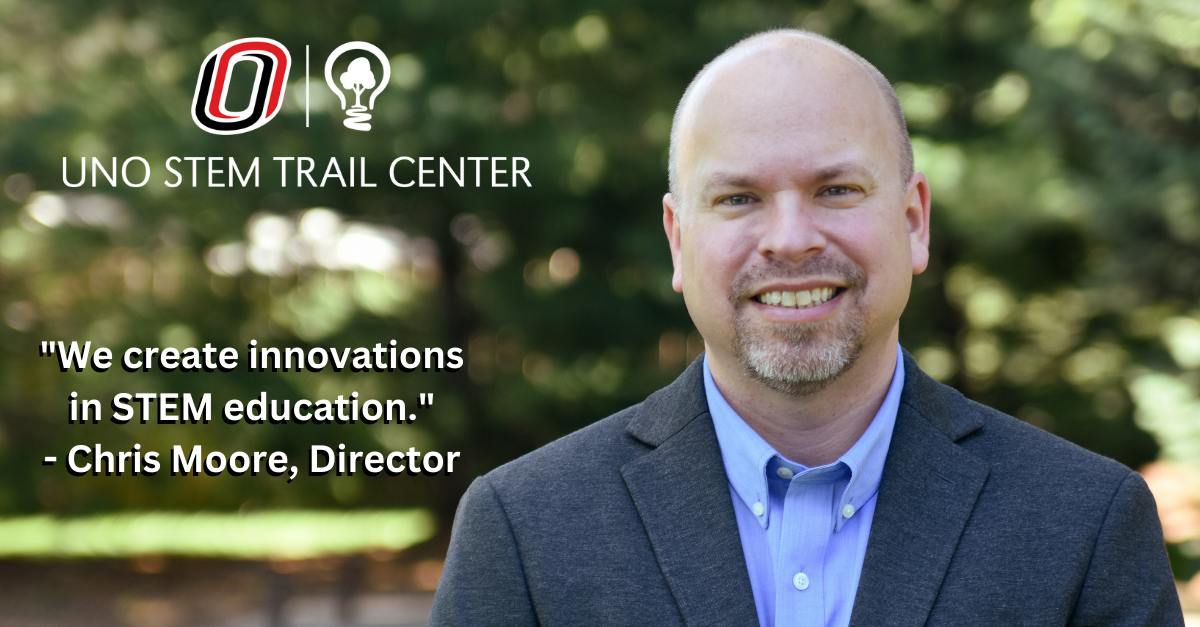Creating Innovations. Making Impacts.

Why Do We Exist?
We exist to elevate human potential by creating innovations in formal and informal STEM education. The center synergizes research with educational excellence by providing faculty with ready-built infrastructure for enhancing the broad impacts of their research, building teams to tackle institutional and educational challenges, and cultivating community partners to support UNO’s Carnegie Community Engaged elective classification. Our approach fosters social mobility by building strong STEM employees and engaged citizens.
We also lead and operationalize the UNO STEM Strategic Plan, which was developed through the work of 65 faculty, staff, and administrators representing all six academic colleges. Working together, we charted a path for the creation of cross-disciplinary support systems and the consolidation of overlapping activity, with a special focus on collaboration rather than competition.
“If you want to go fast, go alone. If you want to go far, go together.”
Value Proposition
The model that underlies our work is education as apprenticeships in innovation through the integration of knowing, doing, thinking, and serving. Students can only truly understand ideas if they experience how practices of the field combine with thinking to produce the discovery of knowledge. Then, they must use those discoveries to produce innovations that better their communities.
Therefore, our value proposition is as follows:
We provide a safe environment for students to learn how to solve problems through authentic apprenticeships with coaching from faculty experts and professionals while surrounded by an interdisciplinary, multifaceted community of inquiry.
A university that values apprenticeships also pushes back against the popular and wrong perception of education as the passive reception of shapes and words, and its corollary that the future is Netflix for Learning. The process of cognitive apprenticeship is how humans learn and is why undergraduate research, service learning, and other experiential student programming is so highly effective.
Strategic Pillars
The Center has adopted the following three strategic pillars:
- educational innovation,
- sustainability, and
- impact on investment.
These pillars clarify what we do--and what we don’t--as an organization. They guide our decision-making at all levels, from which major projects to undertake, to day-to-day decisions like which activities to include in our outreach programs. Every discussion at the Center starts with the question: “What impact will we make today?," and we filter every decision through these pillars.
First, we take seriously our mission to create innovations. This focus on answering unanswered questions and developing novel solutions vertically integrates our research with our outreach and workforce development activities. For example, our outreach programming serves as a sandbox for educational research and infrastructure for innovative undergraduate and workforce experiential and service learning.
Second, we take an entrepreneurial approach that ensures our activities are sustainable long-term, both financially and logistically. This ensures that we do not overextend staff and resources on activities with minimal potential impact. This focus on sustainability informs our funding model: our fee-for-service programming provides consistent revenue to support our dedicated full-time staff, while our research and initiatives expand through both direct and indirect contributions from our generous supporters.
Finally, we expect that everything we do will generate positive impacts on the people we serve and beyond. Similar to a business working to maximize return-on-investment (ROI), we seek to maximize impact-on-investment (IOI). This means that we must be entrepreneurial in our approach and driven by consistent measurement of and response to impact metrics. The time and treasure of our faculty, staff, and partners is finite, which means decisions must be made on their allocation.